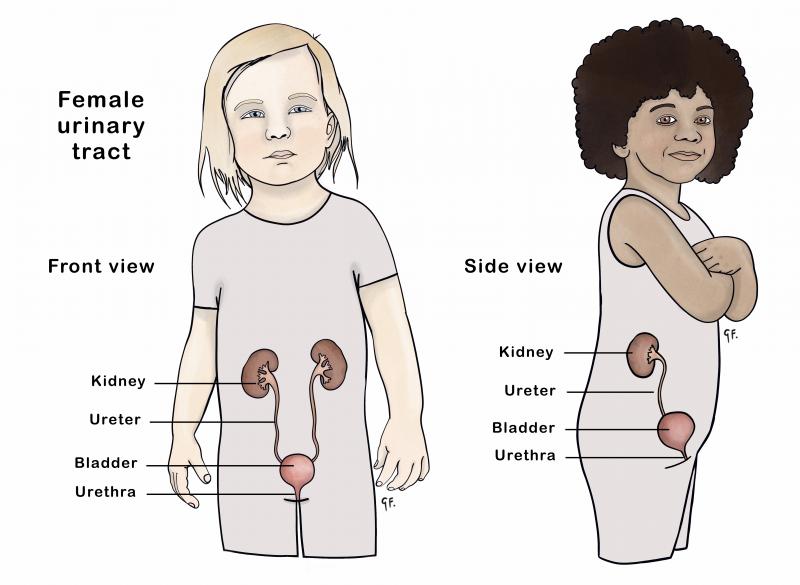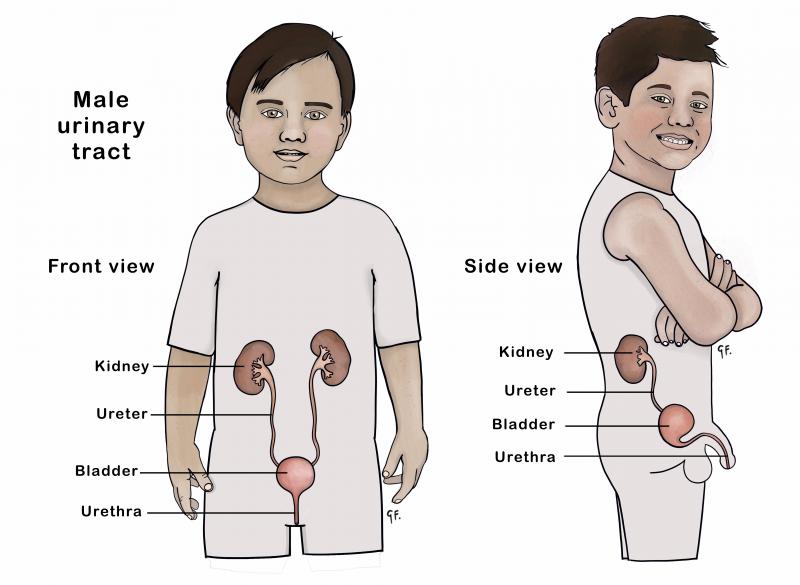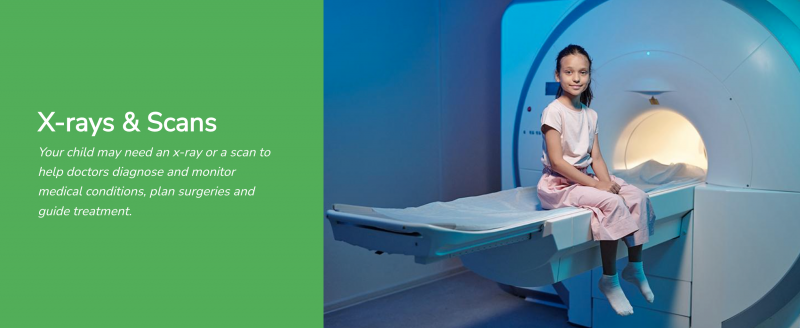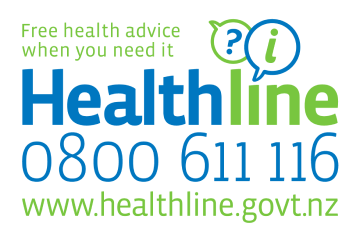Nuclear Medicine Kidney Scans
Nuclear Medicine Kidney Scans
Nuclear medicine kidney scans check on kidney size, function and signs of kidney scarring which may be caused by repeated urinary tract infections.
What is a nuclear medicine kidney scan?
There are 2 types of nuclear medicine kidney scans. Both involve radiographers injecting a weak radioactive solution into your child called a radioisotope. They will then take photos of your child’s kidneys using a special camera.
The 2 radioisotopes are called DMSA and DTPA.
The pictures will give your child's doctors information about:
- any problems in your child's kidney
- how the kidneys drain over time
- how much of the overall work each kidney is doing
What is the urinary tract and how does it normally work?
The urinary tract is the kidneys, ureters, bladder, and urethra.
The kidneys filter and remove waste and water from the blood to produce urine. The urine travels from the kidneys down 2 narrow tubes called the ureters. The urine is then stored in the bladder.
When your child does a wee, urine flows out of the body through the urethra, a tube at the bottom of the bladder. The opening of the urethra is at the end of the penis in boys and in front of the vagina in girls.
Front and side view of the female urinary tract.

Front and side view of the male urinary tract.

Why is my child having a nuclear medicine kidney scan?
The reason for the scan will depend on your child's history, examination and results from other scans and x-rays. Your doctor will decide which scan will provide the most useful information to guide your child's care.
Where will my child have a nuclear medicine kidney scan?
This scan takes place in your hospital's nuclear medicine department.
What happens during a nuclear medicine kidney scan?
Your child will have an IV line
A doctor or nurse will insert an IV line into your child's vein and inject the solution.
After the injection, the solution can take some time to travel around the bloodstream to the kidneys - your child can play and relax during this period
If it's your baby having the scan, you can feed and carry them as normal
See the KidsHealth page on IV lines
A special camera takes pictures
After a couple of hours, a special camera takes pictures. The pictures show the progress of the solution through the kidneys and with the DTPA scan, down to the bladder
The pictures take about 20 to 30 minutes and your child may need to lie still for that time. Younger tamariki (children) may need to have some medicine (sedation) to help them stay calm and still
How does it feel having a nuclear medicine kidney scan?
The insertion of the IV line can be uncomfortable. Local anaesthetic cream put on the skin over where the IV line will go in, can help. Apart from this, the rest of the procedure will cause no discomfort.
How can I prepare my child for a nuclear medicine kidney scan?
Bring comforters or any toys that will reassure your child
A dummy or pacifier for pēpi (babies), if they normally suck on one, can be very soothing.
See some other suggestions for helping your child manage their treatment or procedure
Play specialists can help
Many hospitals have play specialists. Their job it is to help explain these tests to your child. Play specialists use play to show your child what is going to happen and ways to help them cope.
You can stay with your child
You will be able to stay with your child for the test. Your presence can help reassure your child.
Pregnant mothers cannot stay during the test, and in this case fathers or someone else familiar to your child can be there.
Are there any after effects from a nuclear medicine kidney scan?
Radiation in general is a risk. But, the amount of radioisotope in the solution is based on your child's height and weight, and is so small that it poses no great risk.
The amount of radioisotope in the solution is the smallest amount possible to get the best pictures.
How do I find out the results of the nuclear medicine kidney scan?
The nuclear medicine specialist will review the pictures and send a written report to your doctor who will discuss the results with you. This usually takes several days.
See more KidsHealth content on x-rays and scans
This page last reviewed 12 July 2024.
Do you have any feedback for KidsHealth?
If you have any feedback about the KidsHealth website, or have a suggestion for new content, please get in touch with us.
Email us now
